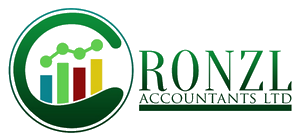Vat registration in the UK is important.
Value-Added Tax (VAT) in the UK is a type of tax that is paid by individuals that buy taxable supplies. This means that for every time you pay for a transaction that is a taxable supply, you pay VAT on it. For example, if an individual visits a solicitor for legal services, he/she would have to pay VAT on the fees charged by the solicitor because solicitors provide standard-rated services. They would add 20% extra on the fees charged and then give HMRC the 20% extra charge on the fees.
The solicitor firm is like an unpaid administrator for the VAT on behalf of HMRC. However, the incentive for the solicitor is that they can reclaim VAT on goods or services they pay for as a business.

When or why should a business owner be VAT-registered? This is a question that business owners often ask themselves when other people ask them if they are VAT-registered.
They are right in asking this question because of the administrative issues involved in running a business that is VAT-registered. There are a number of reasons to be registered for VAT. These reasons include:

-
Compulsory Registration VAT registration
Here, your turnover has gone over the threshold (£85,000) in the last 12 months. This is referred to as the historic test or the turnover will go over the threshold in the next 30 days. This is also known as the future test. When this happens, the business owner must inform HMRC by registering for VAT and they have to start charging VAT on all their taxable supplies and claiming VAT on goods and services they have incurred.
For the business owner who falls within the historic test, that is, their turnover has gone over the threshold in the last 12 months, they must register within 30 days of the end of the month in which they went over the threshold.
Voluntary VAT registration
HMRC also allows business owners who are yet to go over the threshold to register for VAT.
These business owners always have different reasons for registering for VAT.
Requirements for VAT registration
There are a number of conditions expected to be met for registering VAT. The business owner must, or intend to, supply taxable supplies. There are three kinds of taxable supplies; standard-rated supplies, zero-rated supplies and exempt supplies. With standard-rated supplies, the supplier would charge 20% on any supply of goods and services. They can also claim back their input VAT as they are registered for VAT.
The second kind of taxable supplies, zero-rated supplies, involves business owners that supply reduced-rated goods and services, charging 0% on these supplies. However, they can deduct input VAT on the goods and services they pay for.
Exempt supplies, as the name implies, are excluded from VAT. Therefore, you can neither charge VAT nor claim input VAT.

How to claim VAT that was paid for before VAT registration?
Before business owners perform VAT registration, they can claim back VAT paid on the goods paid for in the last 4 years.
They can only make this claim if they still have the receipts for the goods bought and they still use the items in their business at the time the business is registered.
Services paid for before VAT registration are treated differently.
To claim back VAT on the services paid by the business owners before VAT registration, the service must not have been provided within 6 months.
The business owners would need to have proof of paying for the service to be able to claim this VAT back from the revenue.

How to claim VAT on goods and services before Vat registration
.
The VAT paid on qualifying goods and services will be claimed on the first Vat return submitted after registration of the business.
Conclusion on VAT registration
It’s no news that record keeping is very important, but keeping the receipts of goods before registration will also enable the business owners to claim back VAT when they become VAT registered.
Thanks for reading our blog post, If you would like us to support you in any of the issues you have read in this post, kindly contact me.
